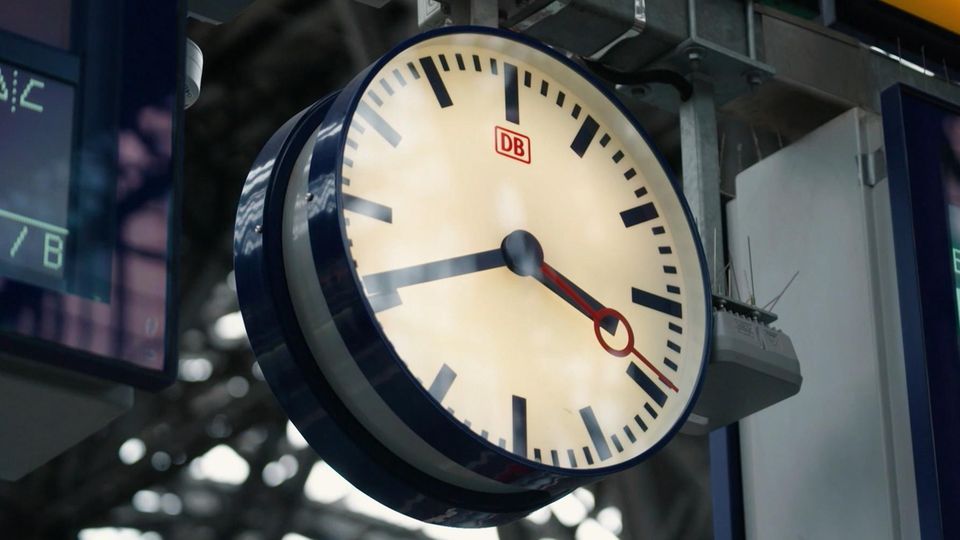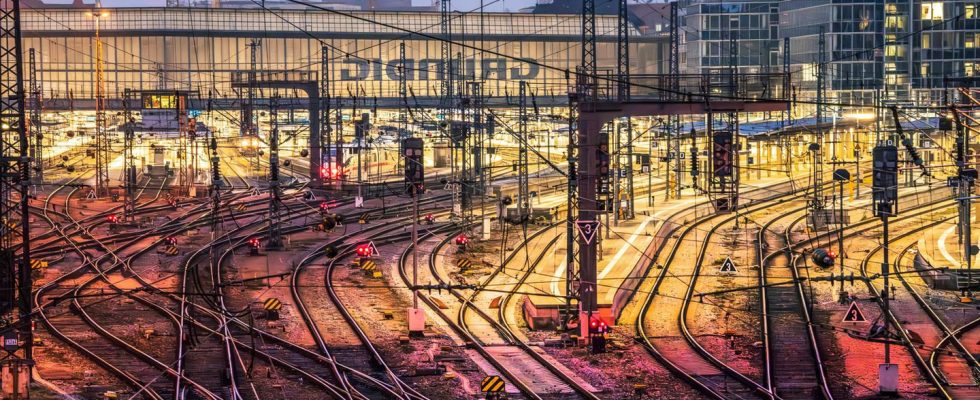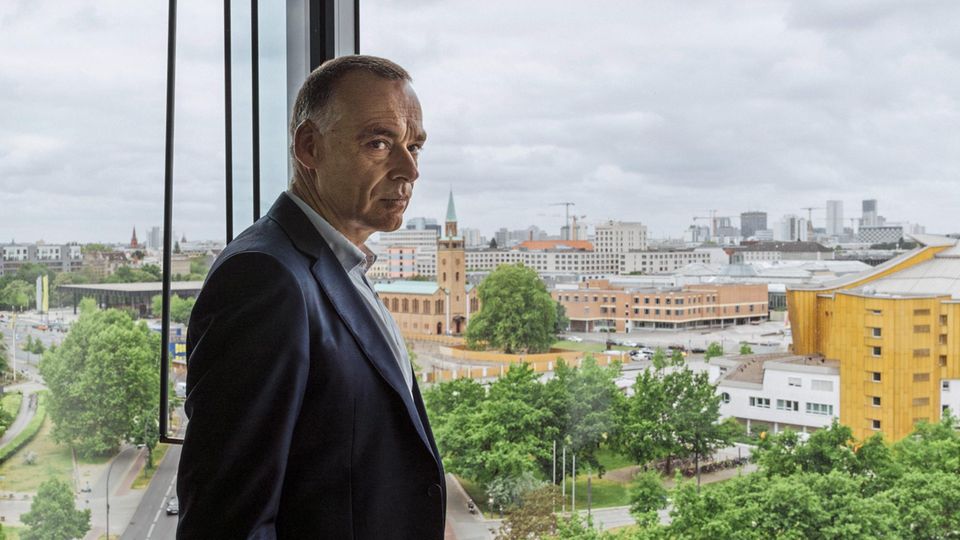“The Insiders”
ZDF removes railway documentary from media library after massive criticism
Tracks at Munich Central Station
© Wolfgang Maria Weber / Imago Images
“Superficial, misleading and unfair”: Deutsche Bahn reacts to a ZDF documentary about the company with harsh words. The Mainz station took the show out of circulation at short notice.
The program was broadcast on television on Tuesday evening at prime time at 8:15 p.m. Around 2.7 million people watched and the market share was just under eleven percent.
Part of the concept of the documentary series is that supposed or real “insiders”, for example former employees, provide insights behind the scenes and into the tricks of the companies in question. Among other things, ZDF has recently dealt with McDonald’s, Ikea and Lidl. In the case of Deutsche Bahn, the masked informants were supposed to tell “what passengers should never know,” as promised in the opening credits of the 45-minute film.
Deutsche Bahn criticizes ZDF documentary
However: In reality, the protagonists mostly only knew what they were familiar with, such as that saver prices are only available for a certain number of tickets or only for certain connections. It is also no secret that the railway is concerned with ensuring that the trains are evenly utilized.
It should also hardly surprise any rail passenger that there have been no freshly cooked meals in the dining cars for decades, only warmed ready-made food.
Retro travel
When traveling by train was a luxurious pleasure
Another example: The film criticized the fact that Deutsche Bahn trains were overcrowded because tickets were sold without seat reservations. This is exactly what the company wanted: “We deliberately waive the requirement to make a reservation so that our passengers can travel flexibly,” the railway explained in a statement after the film was broadcast. In addition, last year only 0.2 percent of long-distance trains were partially evacuated due to overcrowding.
Another inconsistency in the documentary concerns the topic of passenger rights. The film suggested that in the event of delays, passengers must submit a paper form to request a refund. However, this has not been the case for a long time – the claim can also be asserted digitally. An “insider” claimed that passenger rights have now become so “twisted” “that you really have almost no right to anything anymore.” The railway replied: “For example, we also provide compensation in the event of ‘normal storms’ or if there are animals on the track. We only do not have to pay if the delay is solely and undoubtedly due to intervention by a third party.” The compensation amount increased from 92.7 million euros in 2022 to 132.8 million euros in 2023.
“The Insiders” also attacked the state-owned company when it came to environmental protection: Deutsche Bahn is responsible for 2.4 percent of all greenhouse gas emissions in Germany.” “ZDF sums up the DB Group’s global emissions,” contradicted the global company. “The DB’s emissions in Germany only account for 0.6 percent.” Regardless, the fact that the country’s largest transport company accounts for a significant share of greenhouse gas emissions shouldn’t surprise anyone. There was no meaningful comparison to other modes of transport such as planes or cars in the film completely. Instead, the accusation: In local transport, the train “mainly” runs on diesel. This is also wrong, according to the company: “In local transport, the vast majority of trains are electric. Just think of the large S-Bahn networks in Berlin, Frankfurt and Hamburg, which are 100 percent electrified.” At least the information on environmental protection has been corrected in the version of “Insider” that was newly uploaded to the ZDF media library.
ZDF reworks “The Insiders”
The railway did not just criticize the program sharply in terms of content. The company also accused ZDF of producing the film in a biased manner and of not being seriously interested in the railway’s view of things. “The shoot is over, the story is set – now we are just fulfilling a journalistic duty,” criticized the communications department. “A few sentences of our answers were then displayed. A reaction to the statements in the documentary was just as impossible as an interview.
ZDF objected star-Inquiry: “In advance of the broadcast, the company was given the opportunity to provide a detailed statement. The detailed list of questions was discussed in two telephone calls,” said a spokesman. “At no time was Deutsche Bahn denied an interview. Unfortunately, the answers to the questionnaire were very general.”
It’s not just the railway company that is dissatisfied with the quality of the documentary, users also expressed criticism on social networks, calling the film “misleading”, “lurid” or “unobjective”. Even someone interviewed for the format distanced themselves from the program. Dirk Flege, managing director of the Pro-Rail Alliance, said after the broadcast: “I wish I hadn’t contributed an original sound,” he wrote on X, formerly Twitter. “45 minutes of a lot of half-truths, banalities and false statements. It’s a shame.”
The railway itself stated that it could deal with well-founded criticism “as long as we fight with an open mind. That wasn’t the case with ZDF, and our employees don’t deserve that.” At the same time, the company admitted: “We know that our performance is not what the passengers deserve.” The public broadcaster addressed in its response star does not address the railway’s other points of criticism.

Sources: German railway, “The insiders in the ZDF media library”ZDF statement, Dirk Flege at X


